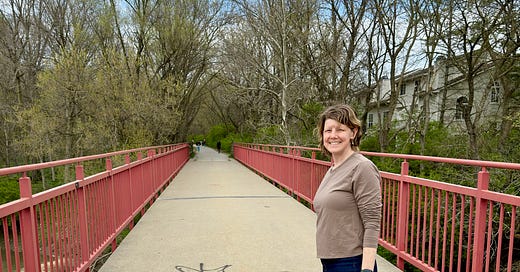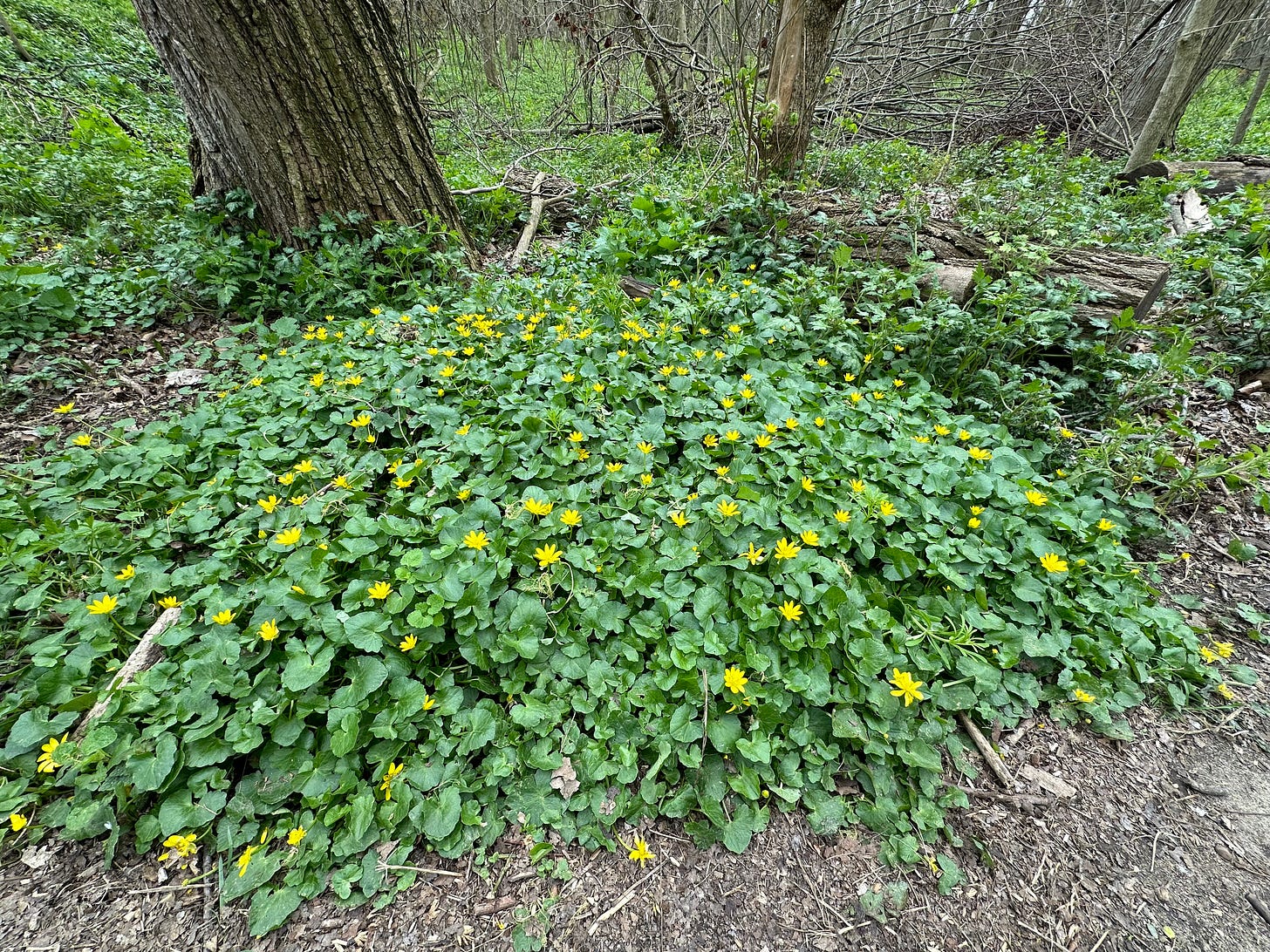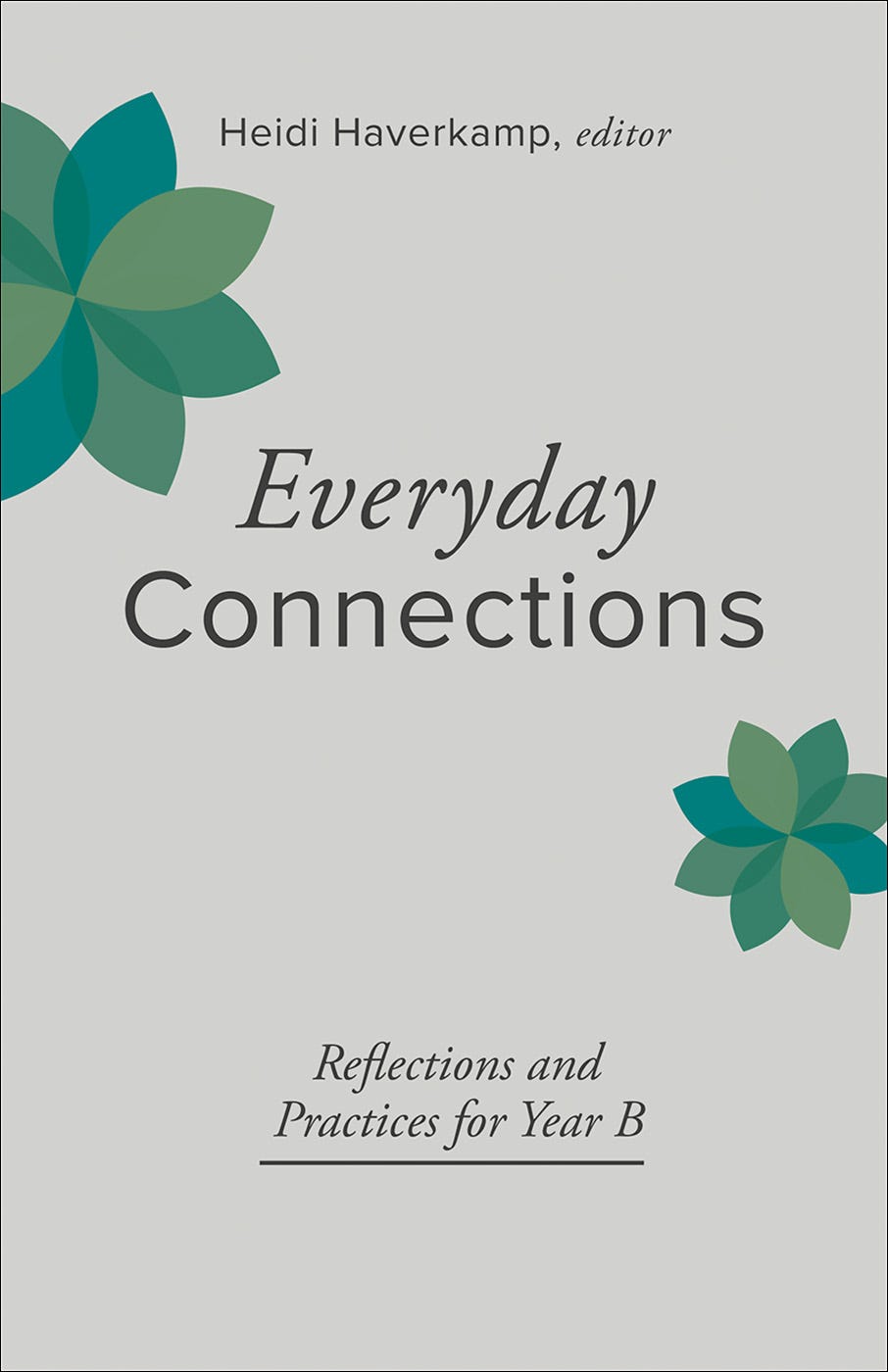“What do you want?” Shouldn’t the answer to this question be simple? It’s not. Knowing what we want is complicated
Sister Chris was my spiritual director in seminary. Every time we met, she asked me, What is your deepest desire? And every time, I felt confused. What was my deepest desire? Did I have just one? What could it be? Becoming an Episcopal priest was not, in fact, my deepest desire, although growing in God and sharing God with other people was very important to me. I was trying to figure out if this meant the same thing.
We are a Venn Diagram of wants; desires that may or may not overlap or even pull in opposite directions. I want solitude and community, I want beauty and justice, I want to learn new things and go more deeply into what I already know. The hardest decisions in life are not choosing between a bad and a good decision but choosing between multiple good decisions.
The first few years after I was ordained in 2007, I found it difficult to desire anything but making my church as effective and vibrant as possible. I did some damage to myself because I stopped listening to my other desires: solitude, reading and study, exercise, family. This is probably not uncommon for new clergy or a young person entering their career field. But – and this was confusing, because I was struggling and so often physically ill – my singular focus worked! My church grew and was successful.
A few years later, my physical and mental health struggles forced me to let go: lay people and I shared leadership, I started writing (a blog, etc.), and so, ministry got more manageable. Also, church attendance stopped growing and even dipped. And, I had warped something inside myself. My friend Emily encouraged me to be a “contemplative priest,” but I found it difficult to reset from Uber-Effective-Innovative Priest. In 2016, I became the Senior Associate in a larger church, thinking I could refresh and recenter my call if I wasn’t the boss. But this didn’t work either.
If I had recognized a “deepest desire” beyond parish ministry, would I have kept my balance? Should my deepest desire have been “God”? But what does that mean? I find it kind of vague. It has been these last few years away from parish ministry has helped me recenter myself – including the part of my personality that is a “part-time hermit”! I know myself and my desires better than I did when I was a young priest.
But I still don’t have a simple answer to Sister Chris’s question.
Christianity historically has sidelined desire (especially for women), teaching service, sacrifice, and love of others over self. These aren’t terrible things: in times and places with meager resources, when violence and disease are everyday realities, setting aside the self for family and community is necessary for survival. Today, as our society is more stable, Christianity more often teaches us to listen to the self, “created in God’s image.” The daily examen of Ignatian spirituality has become popular: noticing how and when we feel God’s presence and delight in us. Feminist spirituality and lectio divina encourage listening to the heart as we pray and read scripture. Focusing on God is love rather than “God wants us to follow the rules.”
My understanding of desire has been complicated, however, not only by my life experience, but reading books by Buddhist teachers like Thich Nhat Hanh and going on retreats. Buddhism is suspicious of desire but in a different way than traditional Christianity. Its central teaching is that desire causes suffering - but hear this out, it makes sense. Desire can easily become clinging or pain control. It can become a need to possess and control. Sometimes our heart longs for something just to fill holes, grasping after pleasure and comfort, or trying to escape anger, fear, or shame. Desire can lead us to truth, but fair warning: it can also lead us into a mirage.
Desire as delusion can lead you to look away from your true desires. Because the delusions and mirages are attractive! If you’re like me, maybe you buy things, sign up for workshops or trips, search for the right book to tell you what to do, or fixate on good food, rather than to sit with the desire (and pain) and then listen to the Holy Spirit and for your true desires, beneath the rippling, troubled surface.
Maybe I want to edit Sister Chris’s question: What is your deeper desire? Beneath all the other ones.
Because sometimes a desire is not a mirage or fully true either, but a symbol: a clue to a hunger in us that is going unfed. For many years as a young adult, I thought about joining a monastery, and later, starting an intentional community with Adam - I mean, I loved to fantasize about it and made a million different plans about combining the daily office, meditation, and a farm, or something. But there is not much solitude in an intentional community, I don’t have the personality of a charismatic founder, and I don’t know how to run a farm, really. So I try to listen more to my need for beauty, belonging, and being outside. Or to visit other people’s intentional communities, monasteries, and farms.
What are the things, people, or dream your heart is longing for? Perhaps this is exactly where the Holy Spirit is leading you, or perhaps there is something else you are missing and longing for.
A history professor of mine once pointed out: “Human beings are terrible at knowing what will make us happy.” We are often mixed up, grasping, and focused on the wrong things. I wish Sister Chris had mentioned this. And yet, we can grow into awareness of the different kinds of desire in us, and learn to tell the difference.
I’m a spiritual director myself, now, and I often ask people, if not “What is your deeper desire?” then “What do you want?” or “What do you need?” I ask myself these questions, too. But I also try to ask, “What are you feeling?” “What do you hear yourself saying?” and “What is missing?” — to take a step deeper in and further back. To wonder not only what we desire, but what complicates our desires, and whether what we think that we desire is really what will lead us to fullness of life.
I came that they may have life and have it abundantly. -- Jesus, in John 10:10
Heidi
ALSO FROM HEIDI
The wisdom of not knowing - "Many churches today describe their mission as “knowing God and making God known.” Is there anything wrong with this? Probably not. But how do we subconsciously understand what “knowing God” means?” The Christian Century (March 2024).
Everyday Connections: Reflections and Practices for Year B - My newest book, for preachers, lay people, and/or small groups! Available from your favorite bookseller or Amazon.
This book and series has become one of my go-to resources for spiritual sermon preparation and reflection. I've given it as a gift to others to use for their personal devotion, and the reports have been overwhelmingly positive. Haverkamp has put together a widely varied resource that invites the reader into conversation with self and Christian scripture that doesn't feel daunting from week to week.
THINGS I AM WATCHING
“Perfect Days” (a true part-time hermit movie!) was in theaters but now probably just pay-to-stream? - A beautiful movie about a man in Tokyo who cleans public toilets but lives as a sort of gently Zen hermit, barely speaking, but savoring the rhythm of each day and loving his neighbor, even when the difficult and unexpected occurs.
“Northern Exposure” on Prime Video - A series from the 1990s that takes me back to high school and college, via the town of Cecily, Alaska and its tiny community of funny, quirky people, indigenous and non, out in the woods and mountains. The first two seasons are ok, but the show really starts to shine in Season 3, IMHO.
A BOOK OF PRAYERS THAT KEEPS IT REAL
My friend Elizabeth Felicetti is an amazing writer - and very funny - and her latest book is Irreverent Prayers: Talking to God When You’re Seriously Sick. There are prayers like, “Prayer for My Wound Vac,” “Prayer Asking God to Breathe for Me,” “Prayer after Heart Harm,” “Prayer When the Well-Wishers Have Moved On,” and other, whether frustrated, longing, laughing, or grieving. It is worth a pre-order, for you or a loved one; comes out July 2.
New here? Want to know more? For more about me and my other books and writings, check out my website.






Have you read “A Sacred Voice Is Calling “? It’s so very good on this. Written by a prof/psychologist who taught at Loyola I think.
Thank you for this, Heidi- it was the exact message I didn’t realize I needed today.